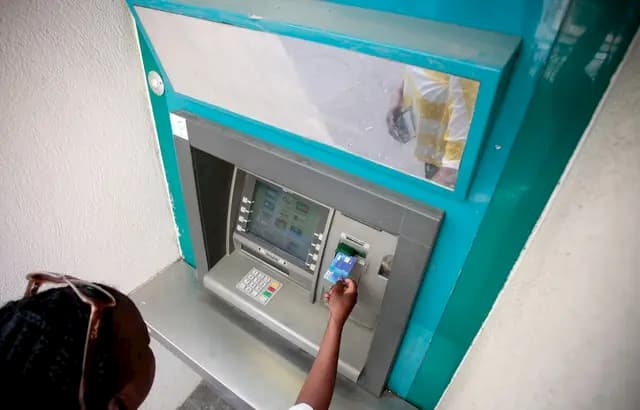Coronavirus: Are Banks in Service During Confinement?

MONEY: Although there shouldn’t be a shortage of cash, banking services could slow over the coronavirus confinement period
- Banks, which are part of essential businesses, remain open during confinement.
- All the usual services and operations are accessible, but players in the banking sector call for priority to remote solutions.
- If the agencies are open, some may close their doors to allow entry only to people who have made an appointment or have a justified reason to travel.
Edouard Philippe underlined it during his speech on March 14, the banks present “an essential character to the Nation”. Like food stores or pharmacies, they are classified as operators of vital importance (OIV).
However, between telework, mandatory appointments and postponed operations, banks, like all, must adapt.
Banks adapt
“Most of the counters today remain open, there are very few branches closed, we adopt operations to meet customers’ needs. Frédéric Oudéa, president of the French Banking Federation (FBF) and director of Société Générale, wanted to be reassuring on BFM Business on Thursday. The same goes for Crédit Agricole: “The vast majority of branches are open. We do everything possible to ensure continuity of service. ”
While some agencies were forced to close due to the influx of customers who came to withdraw their money, the government asked them to reopen. “There is heckling in some agencies, customers who were afraid of not being able to withdraw or of system collapse,” confirms Frédéric Guyonnet, president of the National Union of Banking and Credit / CFE-CGC. Despite the difficulties, the banks are deploying the means to ensure the sustainability of their services. “Many networks were experimenting with telework and not ready to provide large volumes,” says Frédéric Guyonnet. At the Banque Populaire on Monday, we could not have more than 1,000 employees online. This Friday, there are 25,000 people. The technicians worked day and night. ”
Call to favour remote solutions
Despite this deployment, all players call on customers to be responsible. The French Banking Federation has split several press releases, in particular, to remind the French “to make the most of remote devices, the telephone, emails, applications, with which one can do lots of things”. The FBF would like to remind you that an agency contact puts all of its agents at risk of contamination. Frédéric Guyonnet then tells how some people have solved the problem: “Some agencies are open, but gates closed. To enter, you must either have made an appointment or justify your arrival on the intercom. If entry is required, it is granted. The trade unionist recalls that the agents do not have any specific protections against the epidemic: “The masks have been requisitioned and we find hydroalcoholic gel in a dropper. ”
The CFDT Banks and Insurance have also rebelled against the opening of all branches in the current context, and requests that the work be done “exclusively by appointment, by phone or other digital means”. It requests that “adequate resources and the distance of employees from each other” be made available to employees. The spokesperson for a French banking group summed up the situation in a few words: “This is not the time to come to the counter to request a transfer to a Livret A or the latest mortgage rates. ”
Services continue
The situation is therefore difficult, but all the usual services and operations remain accessible. Credit Agricole spokesperson confirms: “All agreements will be honoured, pending requests will be processed and we will make sure that deadlines are met.” Frédéric Guyonnet can attest: “So far, everything is going on”. He conceded, however, some slowdowns: “There may be some slowness. It takes time for the employees to adapt, and then some projects are on hold. ”
As for the financial difficulties that confinement can cause, if companies have been reassured, for individuals, it is still unclear. If most credit contracts allow deferrals of payment for up to three months, “management is done on a case-by-case basis,” explains the FBF.
Enjoyed this? Get the week’s top France stories
One email every Sunday. Unsubscribe anytime.


